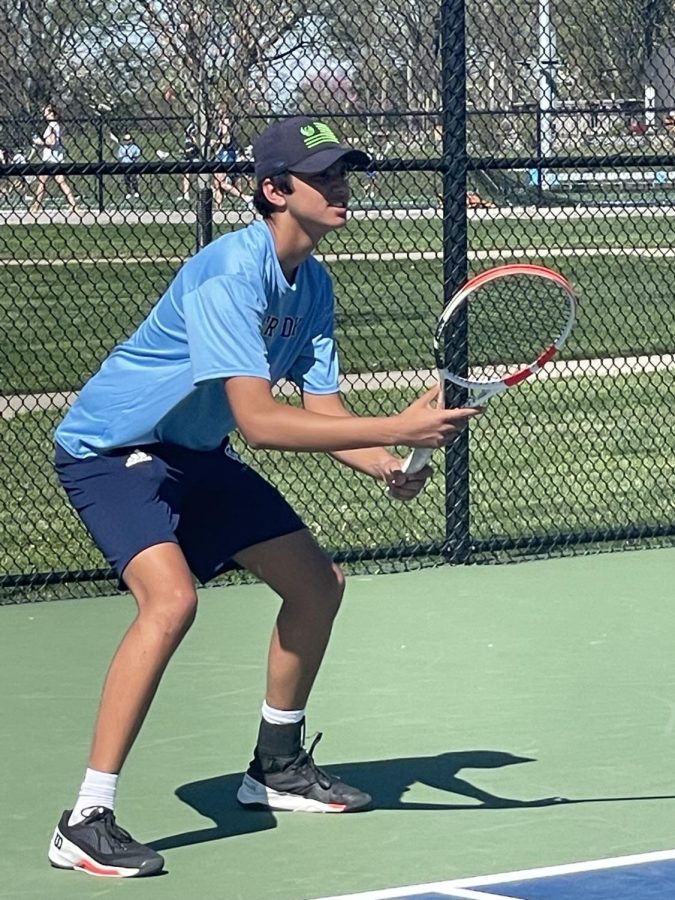By Edwin Sam ’13, Sports Editor
Late in a soccer match, everyone is fatigued as they wait for the final whistle to blow. Players begin to get tired and more nervous, fans get anxious, and the speed of play can either increase or decrease depending on how well each team’s leaders can motivate their team to put in an extra effort. This year, the CCDS Boys and Girls Soccer teams had extraordinary captains that inspired their teams to go the extra mile to win close games. The captains, or “skippers” as informally called in soccer, played well on a consistent basis and made everybody want to emulate their aggression and determination to get big wins. Tony Capurro is the Men’s assistant coach and was a former soccer captain and All-American at Northern Kentucky University. He believes, “It is always good to have the confidence to know that you have a team leader yelling positive things to you.” As fall sports come to an end, seniors are appreciated for their hard work and their huge influence on teams.
The enormous success of the Girls Soccer team was due to their many manifold seniors that offered different styles of leadership for the team. The side’s seniors were a talented group that will be hard to replace next year. It is important for a team to be balanced, in terms of the different types of leaders on the team. “Alexis [Victor] and Jamie [Huelskamp] were big influences in terms of play because each had club soccer experience. They understand the game really well, and having played and started for CCD for all four years, they know exactly how our team needs to play,” said Alexandra McInturf ‘11. Tactically, the team flourished because their leaders were spread throughout the pitch. McInturf led the attack with focus and experience. The other captains Jamie Huelskamp ‘11 and Alexis Victor ‘11 seemed omnipresent and were loud and effective on the field. McInturf again said, “Alexis and Jamie did most of the talking, and Jamie would lead the cheer. Alexis brought a kind of lighter ‘let’s have fun’ approach while Jamie emphasized the need to play well at the same time.” With a few sophomores and a couple of freshmen getting varsity playing time, somebody, like the team manager, Jamie Fisher ‘11 needed to connect with the underclassmen with a less intimidating personality. She helped organize many of the team’s events and was willing to do anything for the team. A goalkeeper must see the entire field and needs to be a vocal person that can see plays before they happen. Blythe Gross-Hutton ‘11 used her experience in goal to lead the team during difficult situations. Because sports can often get too serious, every side needs players that do not get caught up in the competiveness and view soccer as just a game. These people are necessary to make sure that a team clicks socially, which helps a team’s chemistry on the field. Claire Heinichen ’11 and Emily Grupp ’11, nicknamed Mascot, were the entertaining seniors that were very supportive of the team. One of the hardest tasks each year is replacing seniors with their vast leadership qualities and knowledge. McInturf’s advice for next year’s captains is, “Don’t always focus on telling people what to do, but lead by example. Play well and have fun.”
The Boys Soccer team had less success early in the season, but due to tactical changes in the middle of the season, the group had a massive turn around and became a respectable side by the end of the season. Head Coach Greg Hirschauer’s decision to change the formation and the position of many players was the key to the team’s massive improvement towards the end of the season. The team’s skippers were moved to a more central role, so they were close to every player and were able to encourage everybody on the field. Captain Rob Pierce ‘11 said, “Our improvement towards the end of the season coincided with everyone’s willingness to talk on the field, which really does make a huge difference.” Pierce and the other captain, Baldur Tangvald ’11, introduced a “Question of the Day” segment during team warm-ups which increased team bonding between upperclassmen and underclassmen. Tangvald’s quick thinking, unmatched energy, and faultless finishing kept the team in many close games. The versatility of the seniors led the team to a win streak late in the season that helped the group get momentum, going into the state tournament. Because Tangvald was moved from defender to striker to stimulate the attack, the team needed athletic leaders in defense that could make big plays. George Drew ’11 was moved from an attacking midfield role to a defensive role to solidify the team’s defense. Drew was moved to defense to shut down a team’s best player, but he ended up getting the game-winning goal which extended the team’s winning streak. Jack Wildman ’11 was also a key substitute when the defense had injuries to crucial defenders. Wildman played with a fearless style of play and he was often compared to a bull because of his tenacity. Chris Ferguson ’11, the face of improvement, came off the bench to give the team energy in defense. Ferguson massively improved from his freshman year and was a big influence. All of the seniors have distinct playing styles that helped the team have balance that is necessary for a team to bond and get results on the field.







